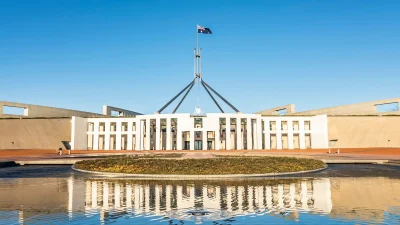Limits urged to super tax concessionality


Superannuation fund members should only be entitled to tax concessionality on those sums necessary to generate an appropriate retirement benefit, according to a senior superannuation industry executive.
The chief executive of Pillar Administration, Peter Brook has used a column in an upcoming edition of Money Management's sister publication, Super Review, to argue for both limits to tax concessionality and inhibitors to the use superannuation as an estate planning tool.
He said there was a need to ensure that superannuation is a tax effective environment only for its purpose and to reasonable limits.
"While I support the Association of Superannuation Funds of Australia (ASFA) Retirement Standard recommendations, the principle remains relevant at other levels. Prior to retirement, I'd like to see all earnings over this sum returned to the member and taxed at marginal rates on a regular, say, half yearly basis," Brook said.
"The only sums that should have any shelter, at 15 per cent, are those necessary to generate the appropriate retirement benefit. The remainder needs to be taxed in the hands of the member.
He said that for those who might already have a higher balance, there could be a grace period to return those sums to the member — "let's say the distribution of surplus benefits within one year of implementation, and for this transition there would be a concessional tax of 15 per cent". "Thereafter, it would be returned at the marginal rate of the taxpayer. This should apply to all member balances, whether in managed super funds or self-managed superannuation funds (SMSFs)," Brook said. "These returned funds will then be invested in other areas, not sheltered by the superannuation tax environment."
"For those in retirement, the existing tax free character of retirement benefits should continue, but all additional income should be taxed at the relevant marginal rates taking account of the totality of the income. So if a retiree receives $80,000 retirement benefit from super and receives another $20,000 outside of super then there would be no tax on the first sum but the additional income would be taxed at 37 cents in the dollar under current tax rates."
Recommended for you
The Governance Institute has said ASIC’s governance arrangements are no longer “fit for purpose” in a time when financial markets are quickly innovating and cyber crime becomes a threat.
Compliance professionals working in financial services are facing burnout risk as higher workloads, coupled with the ever-changing regulation, place notable strain on staff.
The Senate economics legislation committee has recommended Schedule 1 of the Delivering Better Financial Outcomes legislation be passed as it is a “faithful implementation” of the recommendations.
Treasurer Jim Chalmers has handed down his third budget, outlining the government’s macroeconomic forecasts and changes to superannuation.














